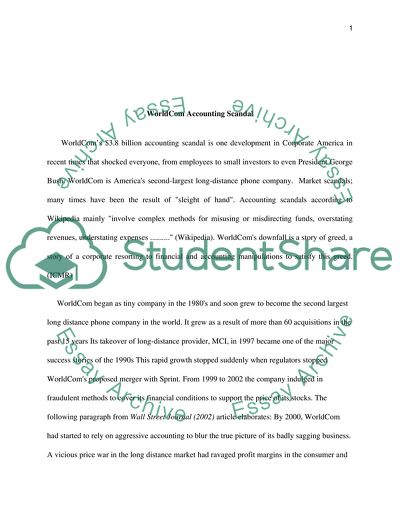Cite this document
(WorldCom Accounting Scandal Report Example | Topics and Well Written Essays - 2750 words, n.d.)
WorldCom Accounting Scandal Report Example | Topics and Well Written Essays - 2750 words. https://studentshare.org/finance-accounting/1712723-worldcom-accounting-scandal
WorldCom Accounting Scandal Report Example | Topics and Well Written Essays - 2750 words. https://studentshare.org/finance-accounting/1712723-worldcom-accounting-scandal
(WorldCom Accounting Scandal Report Example | Topics and Well Written Essays - 2750 Words)
WorldCom Accounting Scandal Report Example | Topics and Well Written Essays - 2750 Words. https://studentshare.org/finance-accounting/1712723-worldcom-accounting-scandal.
WorldCom Accounting Scandal Report Example | Topics and Well Written Essays - 2750 Words. https://studentshare.org/finance-accounting/1712723-worldcom-accounting-scandal.
“WorldCom Accounting Scandal Report Example | Topics and Well Written Essays - 2750 Words”. https://studentshare.org/finance-accounting/1712723-worldcom-accounting-scandal.


